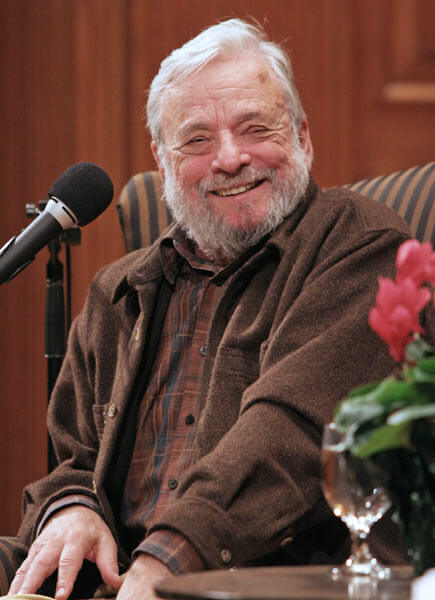By Tammy Scileppi
“The songs get stuck in your head — in a good way.”
Described as “the master lyricist for the theater,” composer Stephen Sondheim at 81 is still at it — writing new songs and promoting his second book, “Look, I Made a Hat: Collected Lyrics (1981-2011).”
Last week Queens College presented “An Evening with Stephen Sondheim — In Conversation with Frank Rich” on the music building stage of the Flushing campus. The composer, who has won an Academy Award, seven Drama Desk Awards, eight Grammy Awards and eight Tony Awards, engaged in an animated and enlightening repartee with Rich, now a New York magazine columnist and former New York Times columnist/chief theater critic.
Sondheim once said his goal was “to tell a strong, clear story, not be in vogue and to balance music and lyrics so that orchestrations never overwhelm the story and its words.”
With some of the greatest scores and lyrics in American musical theater under his belt, Sondheim’s recent revival of the 1971 musical “Follies” took Broadway by storm.
And along with other revivals, like “A Little Night Music” (2010), “Sweeney Todd” (2005) and “Sunday in the Park with George” (2008), awarded the Pulitzer Prize in 1985, his work has reintroduced his vast repertoire of iconic songs to a new generation.
On his trip to Queens, Sondheim discussed a variety of pungent topics, including writers finding their voices, experimentation, the reimagining of his work, the creative power of dreams and the preponderance of standing ovations.
“Prose is easier to write than lyrics — you have much more breathing space,” Sondheim told a captivated audience. “Lyrics have to be crammed in, within a structure, whereas prose can go on and on.”
He and Rich discussed the good old days of lavish Broadway productions and how they have given way to more intimate, pared-down experiences for today’s theatergoers — the orchestras are smaller, but it’s easier to hear the actors.
While Sondheim admitted to some of his past shows being commercial flops, Rich reminded the audience that over decades, they have been studied, analyzed, admired and often critically acclaimed as wonderful reincarnations.
Sondheim’s intricately layered scores and complex approach to creating words and music might have something to do with his musical influences — Ravel, Beethoven, Rodgers, Gershwin and Arlen (“Over the Rainbow”) — and “being brought up on movies.”
During his introduction, Joseph Cuomo, founding director of Evening Readings, spoke about “the brilliant complexity of Sondheim’s characters, and the narrative richness of his songs, which offer glimpses into lives complexly lived. His characters were each recognizable as themselves and distinctly individual.”
Learning a lot about the theater — and games — from his mentor, lyricist/playwright Oscar Hammerstein II, Sondheim recalled that “he taught me bridge, and I taught him chess. And at 13, I wanted to be him.”
Sondheim said he was there when Hammerstein wrote “Oklahoma”, .
It was 1945, and Sondheim was 15. Hammerstein invited him to the opening of “Carousel.” During the first act, Sondheim recalled getting tearful, and afterwards embracing Dorothy Hammerstein, the composer’s wife who served as his surrogate mother after his parents’ divorce, and weeping into her good luck mink stole. He left permanent tears stains on it.
“But I had a good time,” he told the audience, “and ‘Carousel’ was a hit.”
For more information, visit qcreadings.org.
































